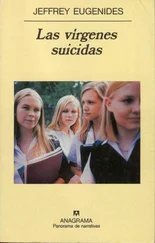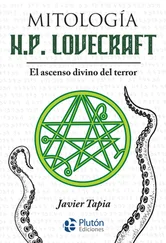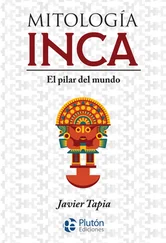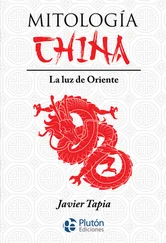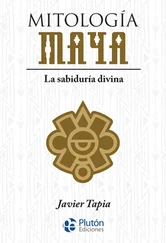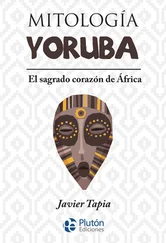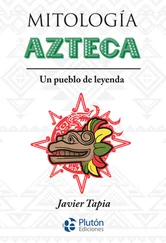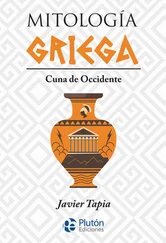Maybe it wasn’t a very good movie that day, or maybe she’d seen too many movies lately—she’d gone for the last eight straight days—but whatever the reason, Tessie couldn’t concentrate. She kept thinking that if something happened to Milton, if he was wounded or, God forbid, if he didn’t come back—she would be somehow to blame. She hadn’t told him to enlist in the Navy. If he’d asked her, she would have told him not to. But she knew he’d done it because of her. It was a little like Into the Sands , with Claude Barron, which she’d seen a couple of weeks ago. In that picture Claude Barron enlists in the Foreign Legion because Rita Carrol marries another guy. The other guy turns out to be a cheater and drinker, and so Rita Carrol leaves him and travels out to the desert where Claude Barron is fighting the Arabs. By the time Rita Carrol gets there he’s in the hospital, wounded, or not a hospital really but just a tent, and she tells him she loves him and Claude Barron says, “I went into the desert to forget about you. But the sand was the color of your hair. The desert sky was the color of your eyes. There was nowhere I could go that wouldn’t be you.” And then he dies. Tessie cried buckets. Her mascara ran, staining the collar of her blouse something awful.
Drilling at night and going to Saturday matinees, jumping into the sea and sliding down in movie seats, worrying and regretting and hoping and trying to forget—nevertheless, to be perfectly honest, mostly what people did during the war was write letters. In support of my personal belief that real life doesn’t live up to writing about it, the members of my family seem to have spent most of their time that year engaged in correspondence. From Holy Cross, Michael Antoniou wrote twice a week to his fiancée. His letters arrived in light blue envelopes embossed with the head of Patriarch Benjamin in the upper left-hand corner, and on the stationery inside, his handwriting, like his voice, was feminine and neat. “Most likely, the first place they’ll send us after my ordination will be somewhere in Greece. There’s going to be a lot of rebuilding to do now that the Nazis have left.”
At her desk beneath the Shakespeare bookends, Tessie wrote back faithfully, if not entirely truthfully. Most of her daily activities didn’t seem virtuous enough to tell a seminarian-fiancé. And so she began to invent a more appropriate life for herself. “This morning Zo and I went down to volunteer at the Red Cross,” wrote my mother, who had spent the entire day at the Fox Theater, eating nonpareils. “They had us cut up old bedsheets into strips for bandages. You should see the blister I’ve got on my thumb. It’s a real whopper.” She didn’t start out with these wholesale fictions. At first Tessie had given an honest accounting of her days. But in one letter Michael Antoniou had said, “Movies are fine as entertainment, but with the war I wonder if they’re the best way to spend your time.” After that, Tessie started making things up. She rationalized her lying by telling herself that this was her last year of freedom. By next summer she’d be a priest’s wife, living somewhere in Greece. To mitigate her dishonesty, she deflected all honor from herself, filling her letters with praise for Zoë. “She works six days a week but on Sundays gets up bright and early to take Mrs. Tsontakis to church—poor thing’s ninety-three and can barely walk. That’s Zoë. Always thinking of others.”
Meanwhile, Desdemona and Milton were writing to each other, too. Before going off to war, my father had promised his mother that he’d finally become literate in Greek. Now, from California, lying on his bunk in the evenings, so sore he could barely move, Milton consulted a Greek-English dictionary to piece together reports on his navy life. No matter how hard he concentrated, however, by the time his letters arrived at Hurlbut Street something had been lost in translation.
“What kind of paper this is?” Desdemona asked her husband, holding up a letter that resembled Swiss cheese. Like mice, military censors had nibbled at Milton’s letters before Desdemona got to digest them. They bit off any mention of the word “invasion,” any reference to “San Diego” or “Coronado.” They chewed through whole paragraphs describing the naval base, the destroyers and submarines docked at the pier. Since the censors’ Greek was even worse than Milton’s, they often made mistakes, lopping off endearments, x’s and o’s.
Despite the gaps in Milton’s missives (syntactical and physical), my grandmother registered the danger of his situation. In his badly penned sigmas and deltas she spied the shaking hand of her son’s growing anxiety. Over his grammatical mistakes she detected the note of fear in his voice. The stationery itself frightened her because it already looked blown to bits.
Seaman Stephanides, however, was doing his best to prevent injury. On a Wednesday morning, he reported to the base library to take the admittance exam for the U.S. Naval Academy. Over the next five hours, every time he looked up from his test paper, he saw his shipmates doing calisthenics in the hot sun. He couldn’t help smiling. While his buddies were baking out there, Milton was sitting under a ceiling fan, working out a mathematical proof. While they were forced to run up and down the sandy gridiron, Milton was reading a paragraph by someone named Carlyle and answering the questions that followed. And tonight, when they would be getting creamed against the rocks, he would be snug in his bunk, fast asleep.
By the time the early months of 1945 rolled in, everyone was looking for exemptions from duty. My mother hid from charitable works by going to the movies. My father ducked maneuvers by taking a test. But when it came to exemptions, my grandmother sought one from nothing less than heaven itself.
One Sunday in March, she arrived at Assumption before the Divine Liturgy had started. Going into a niche, she approached the icon of St. Christopher and proposed a deal. “Please, St. Christopher,” Desdemona kissed her fingertips and touched them to the saint’s forehead, “if you keep Miltie safe in the war, I will make him promise to go back to Bithynios and fix the church.” She looked up at St. Christopher, the martyr of Asia Minor. “If the Turks destroyed it, Miltie will build it again. If it only needs painting, he’ll paint.” St. Christopher was a giant. He held a staff and forded a rushing river. On his back was the Christ Child, the heaviest baby in history because he had the world in his hands. What better saint to protect her own son, in peril on the sea? In the shadowy, lamplit space, Desdemona prayed. She moved her lips, spelling out the conditions. “I would also like, if possible, St. Christopher, if Miltie he could be excused from the training. He tells me it is very dangerous. He’s writing to me in Greek now, too, St. Christopher. Not too good but okay. I also make him promise to put in the church new pews. Also, if you like, some carpets.” She lapsed into silence, closing her eyelids. She crossed herself numerous times, waiting for an answer. Then her spine suddenly straightened. She opened her eyes, nodded, smiled. She kissed her fingertips and touched them to the saint’s picture, and she hurried home to write Milton the good news.
“Yeah, sure,” my father said when he got the letter. “St. Christopher to the rescue.” He slipped the letter into his Greek-English dictionary and carried both to the incinerator behind the Quonset hut. (That was the end of my father’s Greek lessons. Though he continued to speak Greek to his parents, Milton never succeeded in writing it, and as he got older he began to forget what even the simplest words meant. In the end he couldn’t say much more than Chapter Eleven or me, which was almost nothing at all.)
Читать дальше
Конец ознакомительного отрывка
Купить книгу

